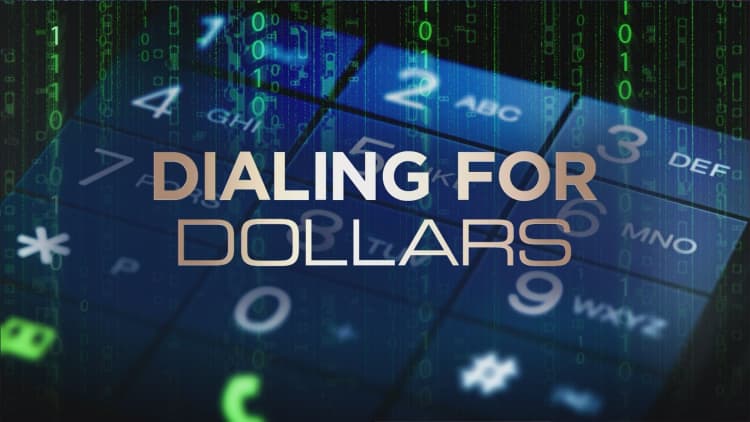
Despite the U.S. government's Do Not Call (www.donotcall.gov ) list—and stiff fines of up to $16,000 dollars per call—unwanted automated phone calls from telemarketers and scammers continue to ring off the hook.
The Do Not Call list, a registry of people who don't want to receive telemarketing calls that began in 2003, now has more than 220 million numbers registered. Meanwhile, the Federal Trade Commission fields thousands of complaints each month, more than any other issue. Many of the scammers originate overseas and spoof or fake the number on caller ID, making it harder for law enforcement to catch the criminals.
Last year, the FCC ruled telecom companies are legally allowed to provide services for customers to block calls. That has been a boon to people like Aaron Foss, the founder of Nomorobo, a call blocking service for VOIP lines. He estimates that 35 percent of all telephone calls placed in the U.S. are actually robocalls.
Some say the egregious number of violations has given robocalls, and the people who make them, a bad rap.
Brad Herrmann, the CEO of Dallas based Call-Em-All says not all automated phone calls are unwanted or scams. His company works with schools, employers, charities, and churches. Some of his clients include Amazon, Six Flags, Texas Tech University, and the Red Cross.
Herrmann told CNBC's On the Money in an interview that "maybe an employer is trying to fill a last minute overtime shift on the weekend and needs to reach out to their employees."
He added that "a lot of people frankly aren't checking their email every few minutes…and they need to get critical information."
While it is legal for companies to make telemarketing robocalls to landlines with a customer's prior consent, Herrmann said Call-Em-All only makes informational calls.
Playing defense
According to the FTC, the best defense against unwanted robocalls is to sign up on the Do Not Call Registry, hang up on illegal sales calls and file a complaint. By talking or pressing any numbers, you are letting the caller know they've reached a real person, which will most likely result in more illegal robocalls.
NBC contributor and noted consumer expert Herb Weisbaum, also known as "The Consumer Man," told CNBC that robocall scams are so pervasive because they use auto dialers to make "millions of calls for fractions of a penny, and use them as a way to start their scams and rip Americans off."
Solutions like Nomorobo work for VoIP, while companies like Hiya, TrueCaller, and PrivacyStar work on cellphones. However, Weisbaum says few are doing anything for their landline customers.
"These companies insist that they just don't want to invest the money to make this work on their landline services because they are going to be expanding the service to internet in the future," he said.
Yet Call-Em-All's Herrmann argued that call blocking alone is not the answer.
"The bigger problem that I think can be solved would be validating that a person making a call is actually the owner of that caller ID, or has permission to make calls from that caller ID," he said. "And that combined with call blocking can make an impact on this."
On the Money airs on CNBC Saturdays at 5:30 am ET, or check listings for air times in local markets.




